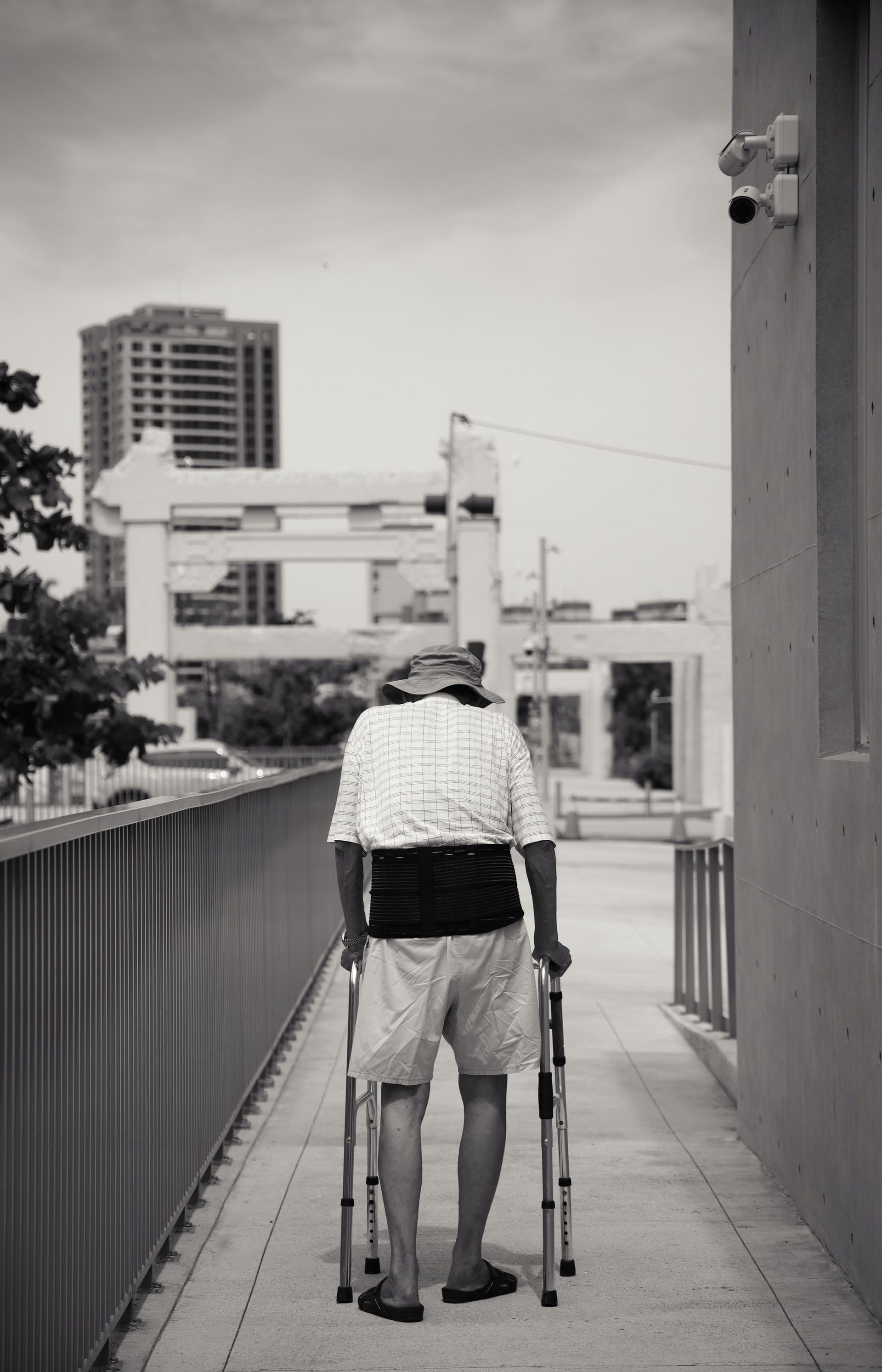First, it is important to understand that there is NO strict age cutoff for a knee replacements. [1] Age is not the only factor that determines your eligibility for knee replacements, nor is it the only factor that determines your surgical outcomes. To learn more about if you should consider a double knee replacement or one at a time for knee osteoarthritis read this blog.
Getting A Knee Replacement Too Early
One study showed that people below the age of 55 who received a knee replacement showed lower levels of satisfaction with their surgical outcome compared to individuals over the age of 55. [2] This study included 2126 people split into 5 age categories. Satisfaction was measured using a visual analog scale, which is a special type of scale that allows a score of 0-100 to be attributed to a person’s level of satisfaction. The average score was 78.1 for people below the age of 55. The average score was 84.8 for people above the age of 55. This study showed that age likely impacts your level of satisfaction with your surgical outcome, with younger age linked to greater dissatisfaction.
Another study found that younger age is associated with increased risk of revision surgery. [3] A revision surgery is a follow-up surgery done to repair or replace the damaged knee implant. The authors conducted a systematic review, which is a type of study design that reviews and summarizes currently available evidence regarding a topic. The authors reviewed 23 knee replacement studies and found that people below the age of 65 were more likely to need a revision surgery. This could be due to the lifespan of artificial knee joints, which is generally 15-20 years.[4] This study showed that age likely impacts your chance of needing a revision surgery, with younger age linked to a higher chance of needing a revision surgery.
Waiting Too Long

On the flip side, it is also important for you not to wait too long before undergoing a knee replacement. One study looked at 3417 knee replacements and classified the knee replacements into 3 categories, timely, premature and delayed.[5] The authors found that 91% of people waited too long for their knee replacement. This is important as waiting too long can lead to further limitations to your physical activity, impact your mental health, and increase your risk for additional disability. To read about the mental side of injury recovery read this blog.
So What’s the Optimal Age?
One study has suggested that getting a knee replacement in your early 70s could be the optimal age. [6] This was a systematic review and found that people in their early 70s showed optimal patient reported outcome measures (PROM). A systematic review is a type of study design that reviews and summarizes currently available evidence regarding a topic. PROMs provide insight on the effectiveness of care from the patient’s perspective and include the Eq-5D-5L and the Oxford Knee Score (OKS). Both the Eq-5D-5L and OKS are questionnaires, with the former designed to measure a person’s quality of life and the latter designed to measure a person’s knee function.
One common question that many people have before a knee repalcement is will the surgery cure osteoarthirits? And this blog written by a Kinesioogy student answers that question. Here is another blog that discusses the pain that you should expect after a total knee repalcement surgery.
Conclusion
There is no strict age requirement for a knee replacement as age is not the only factor to consider when having a knee replacement. Getting a knee replacement too early may lead to greater dissatisfaction with your surgery as well as increased risk of a revision surgery. Getting a knee replacement too late may worsen your condition and ability to function. One study has suggested that your early 70s is the best age to get your knee replaced. Read the full blog above to learn all about getting a knee repalcement too early or too late.
Curious to learn more about knee replacement recovery? In need of an effective guide to your knee recovery? Try the Curovate app, an evidence-based app that will provide you with a physical therapy plan, guided daily video exercises, and more to assist you along your journey to recovery! Download Curovate today by clicking the links below!
If you need further customized assistance before your knee replacement surgery or during your recovery check out our Virtual Physical Therapy page to book your 1-on-1 video session with a physical therapist.
 |
 |
|---|







